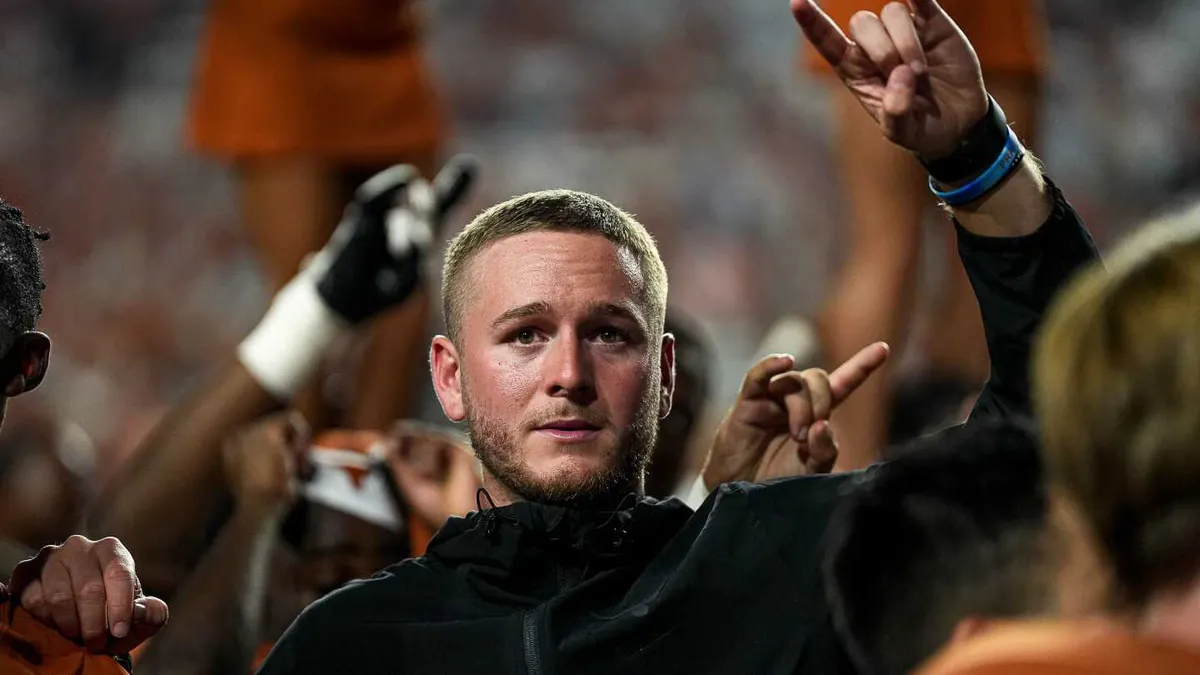
As the NFL draft approached, the focus shifted to quarterback Shedeur Sanders, who found himself sliding through the second and third rounds. This raised a significant question in the sports community: Should he consider returning to college football for another year? Interestingly, this question also pertains to another highly discussed player — quarterback Quinn Ewers.
According to a reliable source familiar with the situation, Quinn Ewers has decided not to pursue another season in college football. His choice to enter the draft has cost him significantly, leaving at least $4 million on the table. Reports suggest that had he opted to transfer to Miami, he could have potentially earned up to $8 million. There were also indications that Notre Dame had shown interest, although the specifics of what they might have offered remain unclear.
Ultimately, Ewers will be selected as the 231st pick in the draft, which comes with a slotted contract. To put this into perspective, the player who occupied that position last year, Jaheim Bell of the New England Patriots, signed a four-year deal worth $4.126 million, which included a signing bonus of $108,740. Therefore, Ewers can expect to receive a similar contract, meaning his total earnings from the Dolphins will likely be comparable to what he could have made in just one additional year of college football.
One of the complexities of Ewers' situation is the uncertainty surrounding his potential return to college football. If he were to reconsider and wish to play another season, he would need to hire a lawyer to challenge the current rule that strips players of their remaining eligibility upon entering the draft. While this may appear to be a violation of antitrust laws similar to those that have impacted the NCAA’s rulebook, a legal victory is far from guaranteed. Moreover, the Dolphins may not be pleased if Ewers delays signing his rookie contract while awaiting the outcome of any legal proceedings.
Whether or not Ewers chooses to challenge the eligibility rule, there is an ongoing concern regarding the NCAA’s current procedures. The January transfer portal opens during the college football playoffs, creating a scenario akin to free agency unfolding during the NFL postseason. This timing puts players like Ewers in a precarious position. After the Longhorns were eliminated from the semifinals, he had just four days to decide on a new program. Faced with this tight timeline, Ewers opted to enter the NFL draft instead.
Reflecting on this rushed decision raises the question: Would Ewers have made a different choice if he had more time to assess his options? While it’s impossible to know for certain, it highlights an essential issue that the NCAA must address. Players should have sufficient time to evaluate their future, whether it involves transferring to another college or making the leap to the NFL. Moreover, they should retain the opportunity to return to college football until they sign a rookie contract.